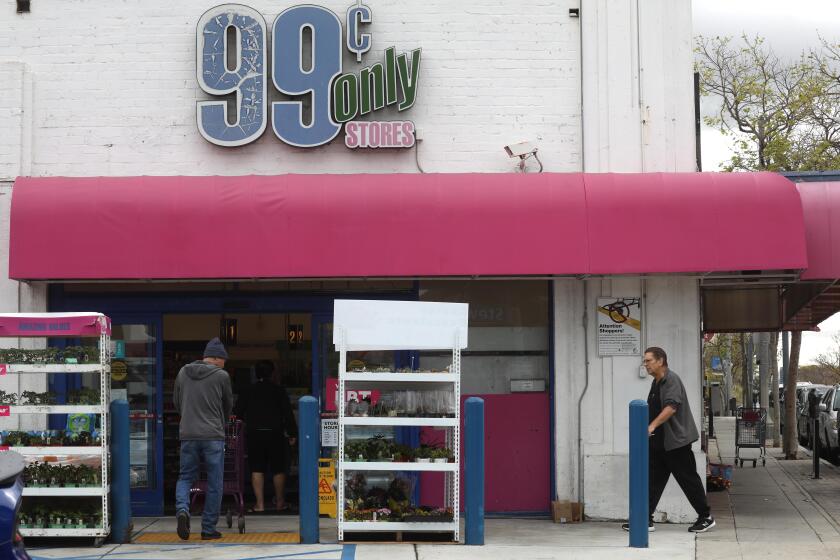L.A. to provide resources to hundreds of 99 Cents Only workers losing their jobs

- Share via
The city of Los Angeles will provide informational resources to 99 Cents Only workers who are losing their jobs as a result of the discounter’s impending store closures, Mayor Karen Bass announced Friday.
The support will extend to people who work at the company’s more than 30 stores in the city, she said. 99 Cents Only Stores, which operates 371 extreme-discount outlets in California, Texas, Arizona and Nevada, announced last week that it was closing all of its locations and winding down its business after 42 years.
“We must do all we can to support Angelenos during this difficult time,” Bass said.
The deep-discount retailer started in L.A. in 1982 and grew to 371 stores. Now all are closing, with rising crime, competition, inflation and the pandemic contributing to the company’s fall.
The city did not specify how many workers would be eligible to receive support. In a bankruptcy filing, the City of Commerce-based retailer said it has 10,874 employees.
L.A.’s Economic and Workforce Development Department has already activated its Rapid Response Team to support the effort, Bass said.
The team, along with the mayor’s Office of Community Engagement, will visit the stores, which are in the process of liquidating, to make information and materials available to employees.
Resources include daily virtual presentations in English and Spanish to help workers make sense of unemployment insurance. The city’s 14 WorkSource Centers are also available to answer questions about being laid off and future employment opportunities.
Bass said the city is also coordinating with Los Angeles County to make the resources available to 99 Cents Only workers throughout the region.
The City of Commerce deep-discount retailer, for years one of the few true “dollar” stores, calls it quits after more than four decades.
99 Cents Only announced April 4 that it was calling it quits, blaming a series of factors that included the COVID-19 pandemic, escalating theft and crime, competition, increases in operating costs stemming from high inflation and the expense of servicing its debt. The privately held company also cited significant minimum-wage jumps, particularly in California, where 265 of its stores are.
Going-out-of-business sales began the next day and are expected to end April 19, with prices storewide slashed by up to 30%.
More to Read
Inside the business of entertainment
The Wide Shot brings you news, analysis and insights on everything from streaming wars to production — and what it all means for the future.
You may occasionally receive promotional content from the Los Angeles Times.












